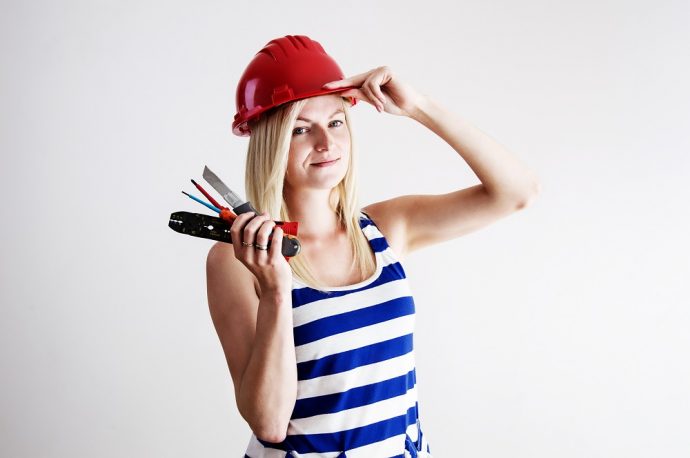After a home has been purchased there’s often little money left to put toward emergency repairs. When things go wrong, the sooner they can be fixed the less likely they will turn into something bigger. Even handymen can get expensive rather quickly. In order to help save time, money and stress try to fix it yourself first. Here are a few tips from industry experts you may want to try.

Choose Your Projects Carefully
It’s easy to fix a hole in the wall or put on a new doorknob. However, when it comes to things like repairing a leak, especially one hidden in a wall, you need to be more careful whether or not you want to take on the project. The last thing you want is to make things worse.
Where to Get Help
The internet is filled with “DIY How-To’s.” For example, The Family Handyman has a list of things you should know as a homeowner that will get you started. Eventually you’ll develop the skills you need to tackle any job.
Learn What to Look For
Even the smallest problem can become a big one in a very short time without attention. However, you need to learn what to look for as well as what you’re seeing and that takes a little research. The internet, your local library and neighborhood home improvement store are filled with materials, information and experts that can help you. You’ll need basic tools and materials to get started as well as lots of practice. If you’re not sure what you’re seeing then take a picture and ask a local expert.
Negotiate Then Learn
If you feel out of your element and want help, negotiations can lower the cost of your handyman while making you feel secure that the job is done right. For instance, you can purchase the materials needed for the job so the cost of the handyman is labor only. That way you can shop around for the lowest cost for materials. When the handyman makes the repair, watch them carefully and take notes. Note what tools they used and the order in which they completed the work so you can do it yourself next time. Make sure the tools used are of good quality, like those at West port, so they don’t have to be replaced so often.
It doesn’t really matter if you’ve purchased a fixer-upper, condo or new build, things will come up that need to be addressed. Maintenance and home improvements are ongoing projects and the sooner you can develop the skills you need to tackle things on your own the better. With the right tools, information and advice you’ll take on even the most difficult projects before you know it.

